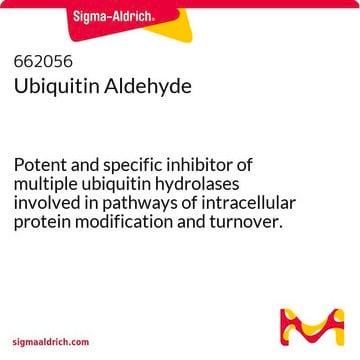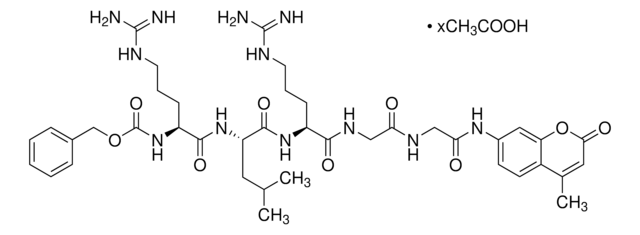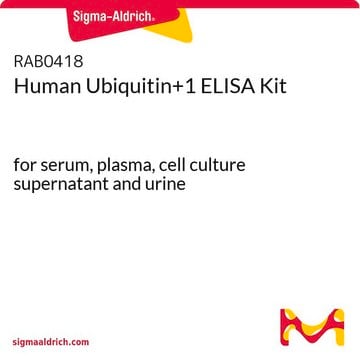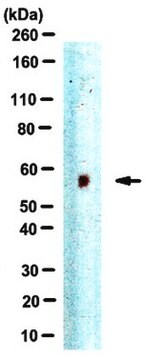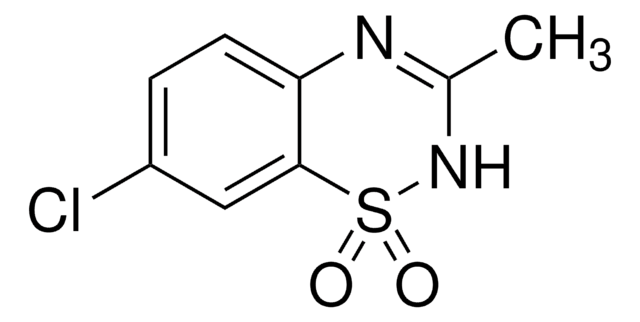U2258
Ubiquitin-7-amido-4-methylcoumarin
≥95% (HPLC), solution (supplied in DMSO)
Synonym(s):
Ubiquitin-AMC
Sign Into View Organizational & Contract Pricing
All Photos(1)
About This Item
Recommended Products
product name
Ubiquitin-7-amido-4-methylcoumarin, solution (supplied in DMSO)
Assay
≥95% (HPLC)
Quality Level
form
solution (supplied in DMSO)
shipped in
dry ice
storage temp.
−70°C
General description
Manufactured for Sigma by Boston Biochem. Inc.
Ubiquitin-7-amido-4-methylcoumarin (Ub-AMC) is a fluorogenic Ub-base probe. It consists of AMC conjugated to the glycine residue of ubiquitin. Ub-AMC is a fluorogenic substrate for ubiquitin C-terminal hydrolase-L3 (UCH-L3) as well as other UCH isozymes.
Application
Ubiquitin-7-amido-4-methylcoumarin (Ub-AMC) has been used as a fluorogenic substrate in deubiquitinase assay buffer.
Storage Class Code
10 - Combustible liquids
WGK
WGK 2
Flash Point(F)
188.6 °F
Flash Point(C)
87 °C
Certificates of Analysis (COA)
Search for Certificates of Analysis (COA) by entering the products Lot/Batch Number. Lot and Batch Numbers can be found on a product’s label following the words ‘Lot’ or ‘Batch’.
Already Own This Product?
Find documentation for the products that you have recently purchased in the Document Library.
Efficient chemical synthesis for the analogue of ubiquitin-based probe Ub--AMC with native bioactivity
Xu L, et al.
Royal Society of Chemistry Advances, 6(53), 47926-47930 (2016)
Kazunori Hirayama et al.
Bioorganic & medicinal chemistry, 15(21), 6810-6818 (2007-09-01)
UCH-L3 (ubiquitin C-terminal hydrolase-L3) is a de-ubiquitinating enzyme that is a component of the ubiquitin-proteasome system and known to be involved in programmed cell death. A previous study of high-throughput drug screening identified an isatin derivative as a UCH-L3 inhibitor.
Sehyoun Yoon et al.
Neuron, 105(3), 506-521 (2019-12-10)
Variants in the ANK3 gene encoding ankyrin-G are associated with neurodevelopmental disorders, including intellectual disability, autism, schizophrenia, and bipolar disorder. However, no upstream regulators of ankyrin-G at synapses are known. Here, we show that ankyrin-G interacts with Usp9X, a neurodevelopmental-disorder-associated deubiquitinase (DUB).
Our team of scientists has experience in all areas of research including Life Science, Material Science, Chemical Synthesis, Chromatography, Analytical and many others.
Contact Technical Service